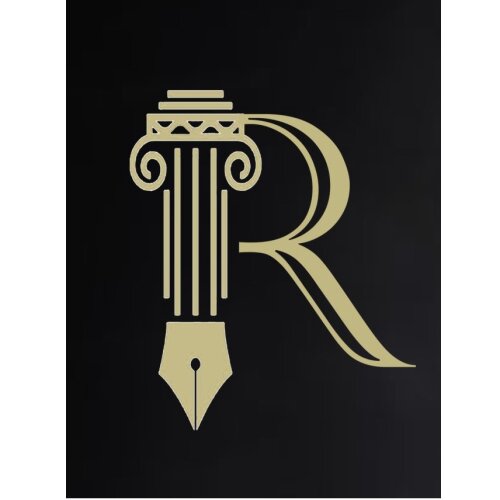Best Pension Lawyers in Lilongwe
Share your needs with us, get contacted by law firms.
Free. Takes 2 min.
List of the best lawyers in Lilongwe, Malawi
About Pension Law in Lilongwe, Malawi
Pension law in Lilongwe, Malawi, is designed to ensure the financial security of individuals after retirement. Pensions are typically part of employment benefits provided by employers to their employees. In Malawi, there is a mandatory national pension system regulated by the Pension Act of 2011, which outlines how contributions should be made by employers and employees, as well as the management of pension funds. The purpose of these laws is to safeguard retirement savings and provide retirees with a reliable source of income.
Why You May Need a Lawyer
Engaging a lawyer for pension-related issues is important in several scenarios: - If you are experiencing trouble accessing your pension benefits. - When there is a dispute over the computation or payout of pension benefits. - If you are unsure about how changes in legislation may affect your retirement savings. - In cases where mismanagement of the pension fund is suspected. - When an employer fails to make the required contributions to your pension account. A legal expert can help clarify your rights, ensure compliance with the law, and provide representation in grievances related to pensions.
Local Laws Overview
The Pension Act of 2011 is the core legislation governing pensions in Malawi. Key aspects of the law include: - Mandatory contributions: Employers must contribute at least 10% and employees 5% of monthly salary to pension funds. - Pension portability: Employees can transfer pension benefits when they change employers. - Fund management: Pension funds must be managed by registered pension administrators and custodians. - Regulatory oversight: The Reserve Bank of Malawi supervises pension schemes to ensure compliance and protect beneficiaries. Understanding these provisions helps individuals and employers meet their obligations and secure retirement benefits.
Frequently Asked Questions
What is the minimum contribution to the pension fund?
The law requires employers to contribute at least 10%, while employees need to contribute a minimum of 5% of their monthly salaries.
Can I opt out of the pension scheme?
Participation in the pension scheme is mandatory for eligible employees; opting out is not permitted under the Pension Act.
How are pension benefits calculated?
Pension benefits are calculated based on contributions made by both employer and employee, investment returns, and the scheme's terms and conditions.
What happens if my employer does not remit pension contributions?
You can report such cases to the Reserve Bank of Malawi, which regulates compliance with pension laws. Legal action can also be pursued.
Is early withdrawal from my pension fund allowed?
Early withdrawal is generally prohibited, except in certain circumstances such as retirement, permanent disability, or immigration.
How can I check my pension fund balance?
You should receive regular statements from your pension administrator, or you may contact them directly for updates on your fund balance.
Are there penalties for late contributions?
Yes, the Pension Act imposes fines and interest on late contributions to ensure timely remittances.
What are pension surpluses?
Pension surpluses occur when the assets of a pension fund exceed its liabilities, which can sometimes lead to benefit adjustments or contribution holidays.
Can expatriates participate in the pension scheme?
Expatriates who are locally employed in Malawi may be obliged to join the pension scheme if they meet specified conditions.
What should I do if I suspect mismanagement of my pension fund?
Report your concerns to the Reserve Bank of Malawi for investigation and consider consulting a lawyer for further legal advice.
Additional Resources
Several organizations and governmental bodies can assist with pension-related inquiries: - The Reserve Bank of Malawi: Oversees and regulates pension schemes. - Malawi Revenue Authority: Provides tax guidance related to pension contributions and benefits. - Pension fund administrators and custodians: Offer direct information about individual pension savings and management.
Next Steps
If you need legal assistance regarding your pension in Lilongwe, Malawi, consider the following steps: - Gather all relevant documents related to your pension plan. - Contact a lawyer who specializes in pension law for an initial consultation. - File a complaint with the Reserve Bank of Malawi if you encounter non-compliance. - Follow up regularly with your pension administrator for updates on your funds. These steps will help ensure that you receive the necessary legal support and protect your retirement savings.
Lawzana helps you find the best lawyers and law firms in Lilongwe through a curated and pre-screened list of qualified legal professionals. Our platform offers rankings and detailed profiles of attorneys and law firms, allowing you to compare based on practice areas, including Pension, experience, and client feedback.
Each profile includes a description of the firm's areas of practice, client reviews, team members and partners, year of establishment, spoken languages, office locations, contact information, social media presence, and any published articles or resources. Most firms on our platform speak English and are experienced in both local and international legal matters.
Get a quote from top-rated law firms in Lilongwe, Malawi — quickly, securely, and without unnecessary hassle.
Disclaimer:
The information provided on this page is for general informational purposes only and does not constitute legal advice. While we strive to ensure the accuracy and relevance of the content, legal information may change over time, and interpretations of the law can vary. You should always consult with a qualified legal professional for advice specific to your situation.
We disclaim all liability for actions taken or not taken based on the content of this page. If you believe any information is incorrect or outdated, please contact us, and we will review and update it where appropriate.









